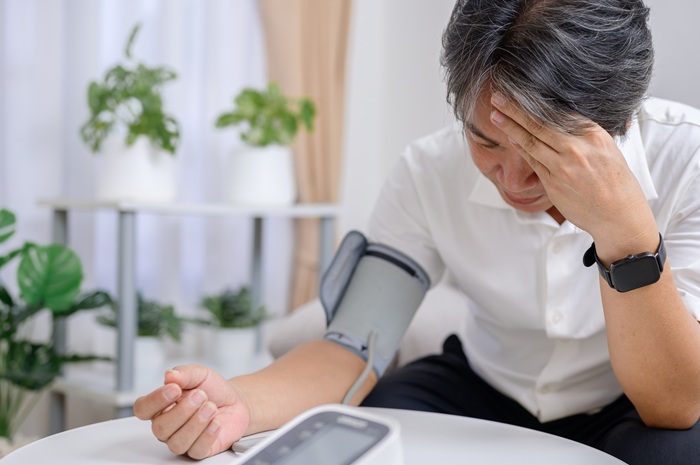High blood pressure, also known as hypertension, is a common yet serious condition that increases the risk of heart disease and stroke. Often called the “silent killer” because of its subtle symptoms, it can cause headaches, dizziness, or vision problems in severe cases. Understanding the causes of hypertension, its symptoms, and treatment options is key to managing this condition effectively.

High blood pressure, or hypertension, occurs when the force of blood against the walls of the arteries remains consistently elevated. It is measured using two key readings: systolic pressure, which reflects the force when the heart beats, and diastolic pressure, which measures the pressure when the heart rests between beats. A normal blood pressure reading is below 120/80 mmHg, while readings persistently above 140/90 mmHg are classified as hypertension.
There are two types of hypertension:
This type of hypertension develops gradually over time and is the most common form. While it doesn’t have a single identifiable cause, it is often linked to factors like genetics, unhealthy diet, lack of physical activity, and the natural ageing process. Lifestyle habits, such as high salt consumption and excessive alcohol intake, can exacerbate the condition.
Secondary hypertension occurs as a result of an underlying medical condition or external factor. Common causes include kidney diseases, hormonal imbalances like hyperthyroidism, adrenal gland disorders, or the use of certain medications such as birth control pills or decongestants. Unlike primary hypertension, it tends to appear suddenly and may lead to higher blood pressure levels.
Hypertension symptoms are often silent, making regular monitoring crucial. When symptoms do occur, they may include:
If you experience these symptoms of hypertension, it’s essential to seek medical advice promptly.
The causes of hypertension are often multifactorial. Contributing factors include:
Understanding why hypertension occurs is vital for prevention and management.
Managing high blood pressure involves a combination of lifestyle changes and medical interventions. Here’s how to treat and manage hypertension effectively:
Your doctor will recommend a treatment plan tailored to your needs.
If you consistently record high blood pressure readings or experience severe hypertension symptoms like chest pain, confusion, or shortness of breath, it’s time to consult a specialist.
If you’re in Bangalore, SPARSH Hospitals offers access to advanced diagnostics and expert treatment. You are treated by renowned cardiologists in Bangalore who will provide personalised plans to manage hypertension effectively.
High blood pressure is a manageable condition with proper lifestyle changes and medical care. Regular monitoring, understanding the causes of hypertension, and adhering to prescribed treatments can prevent complications like heart attacks or strokes. If you notice any symptoms, act promptly to safeguard your health.
High blood pressure often results from lifestyle factors like high salt intake, smoking, lack of exercise, and excessive alcohol consumption. Medical conditions such as diabetes or kidney disease, genetics, stress, ageing, and obesity also play significant roles.
Most people feel nothing, but some may experience headaches, dizziness, or shortness of breath. Severe cases might cause blurred vision, nosebleeds, or persistent fatigue.
High blood pressure often has no symptoms. If symptoms occur, headaches, shortness of breath, or dizziness are the most common indicators.
Possible signs include headaches, dizziness, shortness of breath, blurred vision, nosebleeds, chest pain, palpitations, fatigue, swollen ankles, and difficulty concentrating. Regular check-ups are key to early detection.
Categories: Cardiac Sciences
High Blood Pressure: Symptoms & Causes is available for appointments. Please fill the below form to book an appointment.
|
> Cardiologist in Davanagere |
|
Unlock the door to exceptional healthcare, book an appointment with SPARSH Hospital and let your journey to wellness begin.